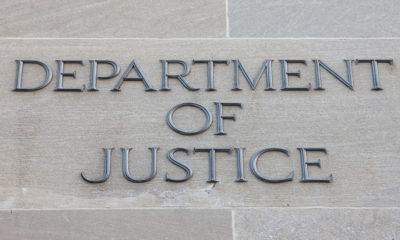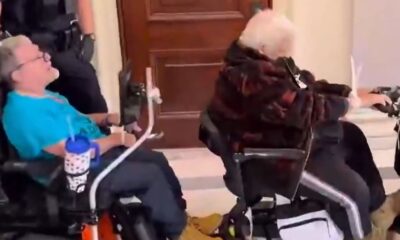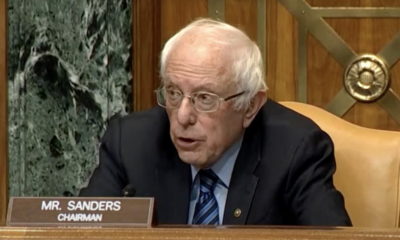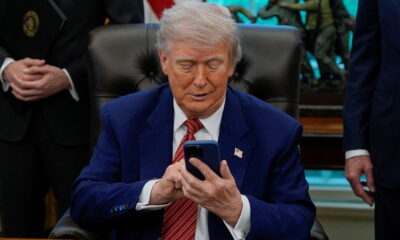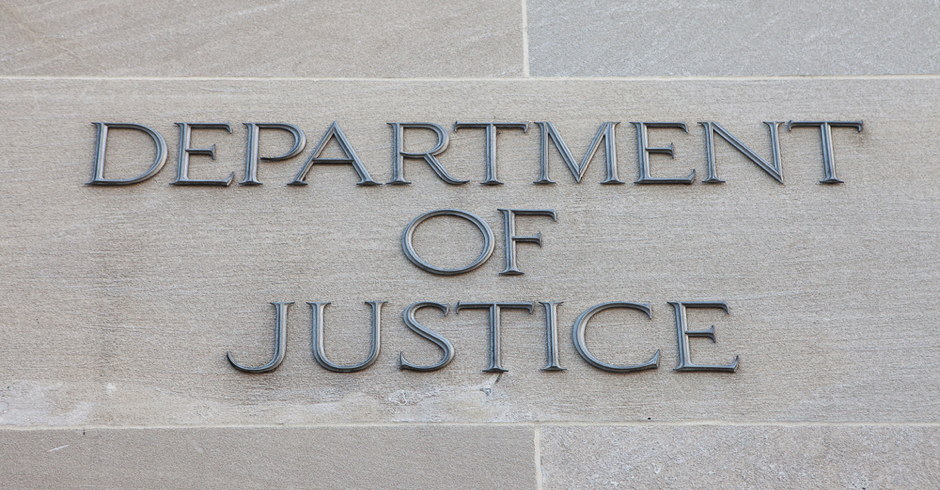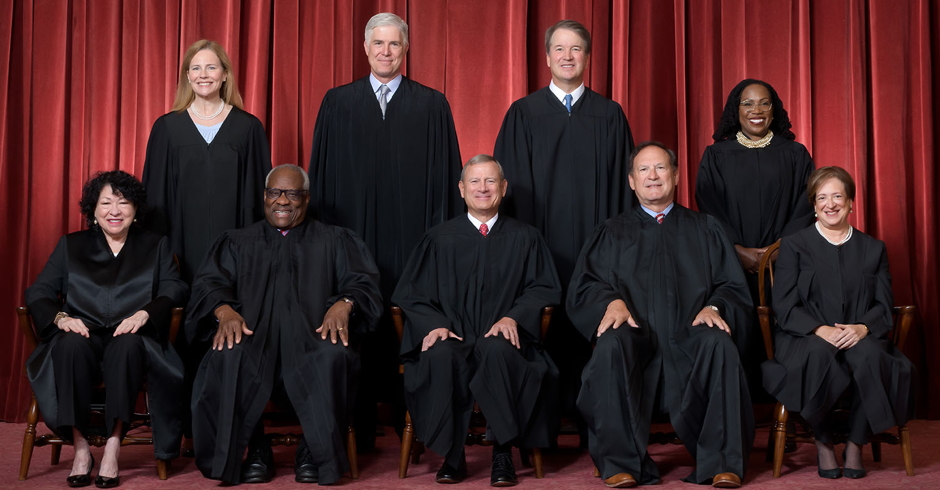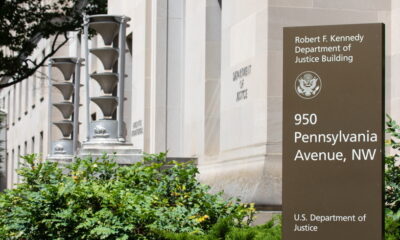News
‘Melania Grift’: Incoming First Lady Hawks Her Christmas ‘Collectibles’ in Fox Interview

America’s incoming First Lady, Melania Trump, in a rare public appearance, sat down with the “Fox & Friends” crew Friday morning to discuss how she is getting ready to return to the White House, how her husband, President-elect Donald Trump, is handling his second transition, and to promote her apparently for-profit business ventures, including her book, Christmas ornaments, NFTs, and other “collectibles.”
Other First Ladies have had careers after serving the American public in the White House, notably Hillary Clinton and Jacqueline Kennedy, but should she continue with this venture or others, Melania Trump may become the first First Lady who has a for-profit business during her time in the White House.
On Fox News, Trump was asked about the public programs she will focus on as First Lady.
She spoke briefly about her signature “Be Best” program, which she launched in May, 2018. It was widely mocked when she introduced it, and reports found some of it was a repackaging of existing federal initiatives around cyberbullying, including those from the Obama administration.
Trump then quickly moved to talking about what she said were her “Web 2” and “Web 3” businesses.
READ MORE: ‘You Answer to Us’: Hegseth Slammed for Saying He Only Answers to Trump, Senators, and God
“Well, when I was in the White House for four years, I established my Be Best initiative and I also successfully brought it overseas and around the world. It was very successful and after I left the White House, I established my Web 3 and Web 2 platforms where I design, where I have collectibles like ornaments every season, this is the third season. And many other collectibles that are available now.”
She then appeared to suggest some of the proceeds from those businesses go to support students, but she did not offer any specifics, nor do her websites. The website where she sells her Christmas ornaments does not appear to say anything about donations to charity.
“So with those, I have students from a foster community that I sponsor and I’m very proud of and we have many of them now, so their life changes because they will have an education,” Trump said.
Asked on Fox & Friends what programs she’s going to champion in the White House this time around, Melania Trump brings up her ornaments collection pic.twitter.com/mEYBmrfQsi
— Aaron Rupar (@atrupar) December 6, 2024
Juliet Jeske, who runs Decoding Fox News, writes: “The money from the overpriced ornaments doesn’t go to charity. I went through her entire website. The profits go back to her.”
On her website, the Christmas ornaments sell for $75 each. The “USA Star” ornament is listed at $90.
“So this are the ornaments that they are available this season, this is the third season that I design and they are very special,” Trump told the “Fox & Friends” co-hosts. “For example, Lady Liberty, it was inspiration from my necklace that I bought when I was modeling in Paris. And now we have an ornament and we have also a necklace that it’s available on MelaniaTrump.com. So I, also, this one it’s the necklace and inspiration, the flower and they’re very patriotic this year. As you could see, it’s all red white and blue and I was inspired by that.”
READ MORE: ‘Sympathy for Dictators’: Ex-NatSec Officials Warn on Gabbard, Want Closed Door Hearings
“They discontinue, they retire, and this is available right now. And it’s a great gift and great collectible, actually.”
Attorney Michael Kasdan, an adjunct professor at NYU School of Law, remarked, “The Fox-Trump Home Shopping Network.”
Attorney Jeffrey Evan Gold, a CNN legal analyst, called it “Free advertising for Melania Grift.”
Melania was on Fox this morning selling “patriotic” Christmas ornaments. pic.twitter.com/wm07nuqrEF
— Ron Filipkowski (@RonFilipkowski) December 6, 2024
Last year, The New York Times reported, “In February 2022, Mrs. Trump started ‘Fostering the Future,’ a scholarship program for foster children aging out of the system. A person familiar with the program, who spoke on the condition of anonymity, would not offer details or disclose how many scholarships have been awarded, saying only that it was ‘more than two.’ No charity with the name Fostering the Future or Be Best is registered in Florida or New York.”
Hillary Clinton, who served as First Lady from 1993 to 2001, has authored nine books, including three during her eight years inside the White House. First Ladies Eleanor Roosevelt and Barbara Bush also authored books while serving in the White House.
For her first book, the 1996 New York Times bestseller “It Takes a Village and Other Lessons Children Teach Us,” Hillary Clinton donated all royalties to charity and took no money except to cover expenses, according to The New York Times. Similarly, for the other two books she wrote during her time as First Lady, Clinton donated the proceeds to charities, including the National Park Foundation and the White House Historical Association.
Barely weeks after Donald Trump’s first inauguration, in 2017, Melania Trump’s “representatives issued statements saying that the first lady ‘has no intention’ of using her public position for personal gain,” The Washington Post reported. The paper noted those statements came one day “after Melania Trump filed a lawsuit accusing a British news company of hurting her ability to build a profitable brand.”
Before Election Day this year, CNN reported Melania Trump’s publisher had requested the news network pay $250,000 for an interview.
“This is completely unprecedented.” The Trump grifting never stops. Melania Trump’s team wants a whopping $250,000 for her to be interviewed by CNN…to promote her own book! (Video: CNN) pic.twitter.com/tSQKiuYxco
— Mike Sington (@MikeSington) October 3, 2024
PEOPLE magazine reported on Friday that “Melania Trump is gearing up for another four years as first lady and all the duties that come with the title, including decorating the White House for Christmas.”
“The ex-model wife of President-elect Donald Trump, 54, previously made headlines surrounding the holidays for her bold choice of Christmas decor — and because of leaked audio recordings where she griped about the responsibility of decorating 1600 Pennsylvania Ave.,” PEOPLE’s report notes.
“’I’m working … my a– off on the Christmas stuff, that you know, who gives a f— about the Christmas stuff and decorations?’ she was heard saying in a recording from 2018 that has recently resurfaced on social media. ‘But I need to do it, right?'”
Watch the videos above or at this link.
RELATED: ‘Unethical’ and ‘Corrupt’: Melania Trump Slammed Over Six-Figure Fee for Political Event
Enjoy this piece?
… then let us make a small request. The New Civil Rights Movement depends on readers like you to meet our ongoing expenses and continue producing quality progressive journalism. Three Silicon Valley giants consume 70 percent of all online advertising dollars, so we need your help to continue doing what we do.
NCRM is independent. You won’t find mainstream media bias here. From unflinching coverage of religious extremism, to spotlighting efforts to roll back our rights, NCRM continues to speak truth to power. America needs independent voices like NCRM to be sure no one is forgotten.
Every reader contribution, whatever the amount, makes a tremendous difference. Help ensure NCRM remains independent long into the future. Support progressive journalism with a one-time contribution to NCRM, or click here to become a subscriber. Thank you. Click here to donate by check.
 |



